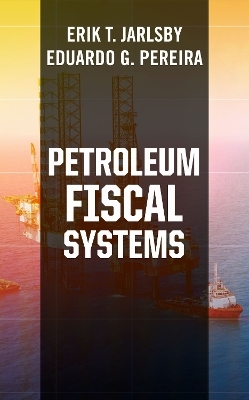
Petroleum Fiscal Systems
PennWell Books (Verlag)
978-1-59370-480-3 (ISBN)
Petroleum fiscal systems are arrangements for sharing the economic value from petroleum extraction between the host nation and the companies engaged in the extraction. In most countries, oil and gas resources are under the control of the national Government. The activities of exploiting the resources are undertaken by firms, some of which are owned by the state. Petroleum resource management therefore is an interaction of two key parties: The enterprises which carry out operations of finding and extracting petroleum from the ground, and the Government as custodian of the resources on behalf of the host nation which ultimately owns them.
The book reviews the various instruments which may form the petroleum fiscal system of a jurisdiction, with numerous examples from countries having configured their systems very differently. It also reviews fiscal valuation and control, related cross-border issues, and the economic analysis and design of fiscal systems related to a variety of development scenarios found in modern petroleum operations.
Features and Benefits
Explain the fiscal and related instruments applied in the upstream petroleum sector internationally: Royalty, production sharing, bonuses, remuneration for service, privileged state participation, corporate income tax, petroleum resource taxes, and non-fiscal business obligations.
Review common issues of delineation and verification of petroleum fiscal parameters, including transfer pricing issues.
Analyze petroleum fiscal systems in terms of value allocation, risk allocation and incentive effects.
Provide design considerations for setting up and implementing the petroleum fiscal system in the context of national petroleum policy and licensing of petroleum rights.
Audience
Oil company executives, business developers, analysts, finance and tax professionals
Politicians and public servants
Investors and financial sector professionals
Lawyers and other professional service providers
Managers and analysts of firms doing business with the petroleum industry
Academia and civil society whose work may relate to petroleum fiscal systems
Students of petroleum economics and related disciplines
Erik T. Jarlsby is a petroleum economist based in Norway and Germany as an independent consultant and lecturer. He has taught master level and professional courses for the University of Stavanger, University of Dar es Salaam, the Petrad Foundation, the Maastricht School of Management, the Eastern and Southern Africa Management Institute and several Chinese universities. He has consulted internationally on issues of petroleum economics and petroleum resource management. He is business manager and partner of Eureka Energy Partners AS, a consultancy. Prior to his consulting career he held several managerial and commercial positions with oil firms Mobil (now part of ExxonMobil), Statoil (now Equinor) and petrochemical firm Borealis Polymers. Dr Jarlsby holds a Ph.D. from the University of Twente, Netherlands, and a licence degree (lic.oec.) in business management and economics from the University of St. Gallen, Switzerland. Eduardo G. Pereira has been active in the oil and gas industry for over 10 years and is an international expert on joint operating agreements. He has oil and gas practical experience in over 40 jurisdictions covering America, Europe, Africa and Asia. Dr. Pereira concluded his doctoral thesis on oil and gas joint ventures at the University of Aberdeen (Scotland). He conducted postdoctoral research at Oxford Institute for Energy Studies (University of Oxford, UK) and another postdoctoral research at the Scandinavian Institute of Maritime Law (University of Oslo, Norway). He is a professor of natural resources and energy law as a part-time, adjunct and/or visiting scholar in a number of leading academic institutions around the world. He is also a managing editor for the African Journal on Energy, Natural Resources and Environmental Law and an associate editor of OGEL. He is also the author and editor of several leading oil and gas textbooks.
| Erscheinungsdatum | 13.02.2019 |
|---|---|
| Verlagsort | Tulsa, Oklahoma |
| Sprache | englisch |
| Maße | 152 x 229 mm |
| Gewicht | 950 g |
| Themenwelt | Technik ► Bergbau |
| Technik ► Elektrotechnik / Energietechnik | |
| ISBN-10 | 1-59370-480-1 / 1593704801 |
| ISBN-13 | 978-1-59370-480-3 / 9781593704803 |
| Zustand | Neuware |
| Haben Sie eine Frage zum Produkt? |
aus dem Bereich


